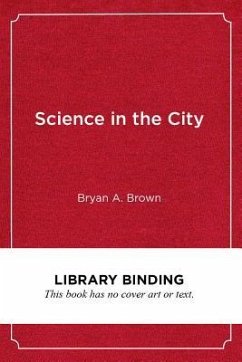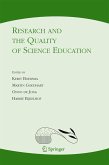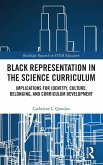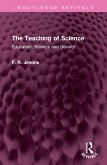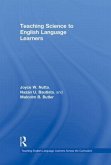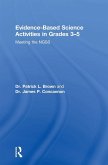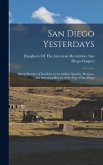In Science in the City, Bryan A. Brown examines how language and culture matter for effective science teaching. Given the realities of our multilingual and multicultural society, teachers must truly understand how issues of culture intersect with the fundamental principles of learning. The book illustrates how science education can flourish if it is connected to students' backgrounds, identities, language, and culture. The result is a classroom that showcases how the use of more familiar, culturally relevant modes of communication can pave the way for improved science learning. "In this book, Brown addresses the challenge of persistent inequities in science education for youth of color with an approach to science teaching that draws strength from the complex ways in which language, race, and culture intersect in classroom life. Weaving together theory and practice, he frames a generative approach to teaching that amplifies the wisdom of lived lives as powerful resources for accessing and leveraging science towards a more just world." --Angela Calabrese Barton, professor, Department of Teacher Education, Michigan State University "Science in the City offers a penetrating analysis of how children in urban schools bring rich linguistic resources for sensemaking about science that are often left unrecognized or dismissed as irrelevant. Brown then shows how we can fundamentally rethink the ways that language is used by teachers and students in the classroom to expand conceptions of 'who is smart' and 'who belongs here.'" --Mark Windschitl, professor of science education, University of Washington "Science in the City introduces high-leverage, classroom-ready practices that concretely address systemic racism and bias, situated within rich stories of research and practice that teachers will find engaging, motivating, and accessible no matter where their students live." --Kirstin Milks, science teacher, Bloomington High School South, Bloomington, Indiana Bryan A. Brown is an associate professor of science education and associate dean for student affairs at the Graduate School of Education at Stanford University. Christopher Emdin is an associate professor of science education at Teachers College, Columbia University. H. Richard Milner IV is the Cornelius Vanderbilt Endowed Chair of Education at Vanderbilt University, as well as the editor for the Race and Education Series.
Hinweis: Dieser Artikel kann nur an eine deutsche Lieferadresse ausgeliefert werden.
Hinweis: Dieser Artikel kann nur an eine deutsche Lieferadresse ausgeliefert werden.

